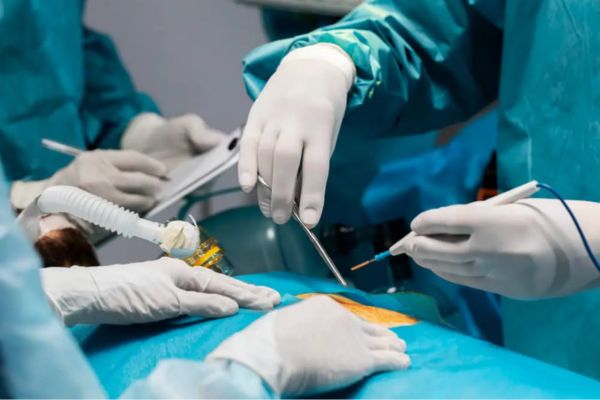Laparoscopy has revolutionized the field of gynecology, offering a minimally invasive approach to diagnosing and treating various reproductive health conditions. This advanced surgical technique allows gynecologists to examine and operate on the pelvic organs with precision, reducing recovery time, pain, and complications associated with traditional open surgery. In this blog, we explore the role of laparoscopy in gynecological treatments, its benefits, and common procedures performed using this technique.
What is Laparoscopy?
Laparoscopy is a minimally invasive surgical procedure that uses a laparoscope, a thin, lighted tube with a camera, to examine the pelvic organs. The procedure involves making small incisions in the abdomen through which the laparoscope and surgical instruments are inserted. The camera transmits high-definition images to a monitor, allowing the surgeon to perform precise and effective procedures with minimal disruption to surrounding tissues.
Common Gynecological Conditions Treated with Laparoscopy
Laparoscopy is used to diagnose and treat a wide range of gynecological conditions, including:
- Endometriosis – Laparoscopy helps diagnose and remove endometrial tissue growing outside the uterus, reducing pain and improving fertility.
- Ovarian Cysts – Cysts that cause pain or do not resolve on their own can be removed laparoscopically.
- Fibroids (Myomectomy) – Laparoscopic surgery can remove fibroids while preserving the uterus.
- Pelvic Inflammatory Disease (PID) and Adhesions – Laparoscopy helps treat infections and remove scar tissue from past infections or surgeries.
- Ectopic Pregnancy – A life-threatening condition where the fertilized egg implants outside the uterus can be treated laparoscopically.
- Infertility Evaluation – Laparoscopy allows doctors to check for blocked fallopian tubes or other structural abnormalities affecting conception.
- Hysterectomy (Uterus Removal) – Laparoscopic hysterectomy offers a less invasive alternative to open surgery for uterus removal due to conditions like fibroids, endometriosis, or cancer.
Benefits of Laparoscopic Surgery in Gynecology
Laparoscopic procedures provide several advantages over traditional open surgery, including:
- Minimally Invasive – Smaller incisions mean less scarring and reduced pain.
- Faster Recovery – Most patients can return to normal activities within a few days to a week.
- Shorter Hospital Stay – Many laparoscopic procedures are performed on an outpatient basis.
- Lower Risk of Complications – Reduced chances of infections and bleeding compared to open surgery.
- Improved Precision – High-definition imaging enhances the surgeon’s ability to operate with accuracy.
What to Expect During a Laparoscopic Procedure
- Preparation – The patient is given general anesthesia to ensure comfort.
- Small Incisions – Tiny incisions are made near the navel and lower abdomen.
- Insertion of Laparoscope – The abdomen is inflated with carbon dioxide gas to create space for better visibility.
- Surgical Procedure – Using specialized instruments, the surgeon performs the required treatment.
- Closure – Incisions are closed with sutures or surgical glue, leaving minimal scars.
Recovery and Aftercare
After laparoscopic surgery, patients may experience mild pain, bloating, and discomfort for a few days. Recovery instructions typically include:
- Rest and avoid heavy lifting for a few weeks.
- Take prescribed pain medications if needed.
- Monitor for signs of infection, such as fever or unusual discharge.
- Follow up with the gynecologist for post-surgery assessment.
Conclusion
Laparoscopy is a game-changer in gynecological treatments, offering a safe and effective alternative to traditional surgery. Whether diagnosing infertility, treating endometriosis, or performing a hysterectomy, this minimally invasive technique enhances patient outcomes with faster recovery and minimal complications. If you are experiencing gynecological issues, consult your gynecologist to determine if laparoscopy is the right option for you.



